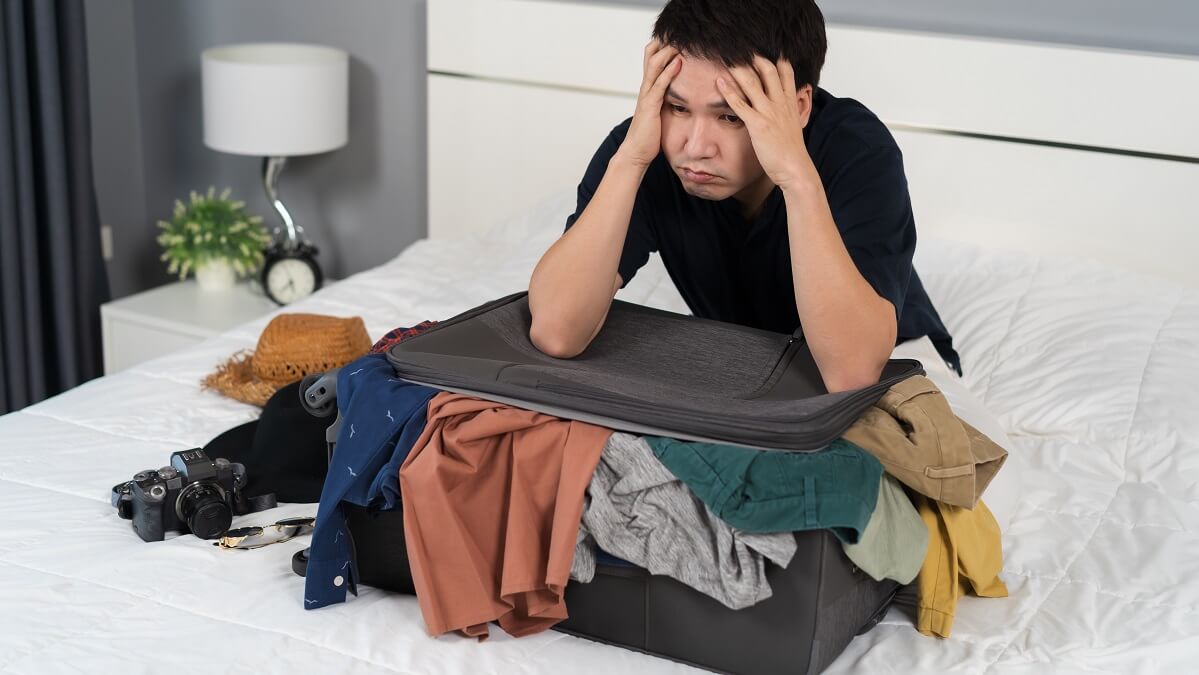Travel broadens the mind, takes you out of your comfort zone and gives you precious, and not so precious memories, to look back on.
But it can also be overwhelming, expensive and the preparation time consuming.
There’s plenty of advice out there about how to improve your experience, but there is a vast difference between a first-time tourist off to Bali with the family and a world traveller who is ticking off countries visited one by one.
We’ve made it easier, with advice for both levels, starting at the beginning.
Read: What type of damage will void your passport?
Beginner travellers
Get your passport ready
This seems obvious, but with massive delays in the passport office you are going to need at least two months’ grace before your planned date of departure. The Australian Passport Office is advising a minimum of six weeks, but also recommends applying for a passport if you are planning to travel in the next six months. Get cracking.
Start somewhere easy
My first trip overseas was to New Zealand, it was just like us but with better scenery. More Lord of the Rings and less Wolf Creek.
Most of Southeast Asia and the Pacific islands are well set up for Australian tourists and you can get by with English in almost all situations. Plus, flight times are manageable without a stopover.
Get your gear sorted out
Buy a suitable set of luggage and make sure you have set up your phone for overseas travel before you go.
Lightweight luggage is ideal, and you’ll probably need a smaller case than you think,
A smaller backpack can double as carry-on and is ideal for day trips. Always carry any vital medication in your carry-on.
If you don’t feel comfortable carrying your laptop, try a tablet.
Organise your electronics
Have an electronic as well as paper back-up of all your travel documentation.
Make sure you have Google Translate and Google Maps apps, both work without a data connection. And if you are travelling alone, make sure you check in with family and friends regularly.
Read: Eight tips to keep your packing light
Seasoned travellers
Insurance
Consider buying annual travel insurance. It takes the hassle out of scouring the internet for the best deal every time and often offers considerable discounts compared to per trip insurance.
You can purchase year-long single trip policies to cover a long holiday or annual travel insurance for several trips over the duration of the policy. For example, if you take out a policy for 30 days, it will only cover the days you travel, instead of paying for the whole 30 days.
Do your research
If you are an experienced traveller, you might have had your fill of generic hotels and resorts, which are a safe bet but can be a little bland.
Star ratings often cover amenities such as room size and laundry facilities but not atmosphere and living like the locals. Deep dive into the internet for a unique experience.
For example, in Vanuatu it’s perfectly normal to stay in someone’s house as guesthouses have filled the gap for the lack of infrastructure.
Check online reviews and ask a travel agent for the insider tips.
Read: Most dangerous places for Aussies overseas
Use your points
If you are a regular traveller, it’s a good idea to join some loyalty programs. Most hotel chain programs are free, and offer immediate perks such as upgrades or access to executive lounges and cheap deals for new or refurbished hotels.
At the very least, think about using your Qantas or Frequent Flyer points to buy travel gear including luggage or travel must-haves such as thermals or personal items such as a travel shaver.
The more points you use, the more money you have to spend on your trip.
Tech savvy
Sort out some great travel apps. There’s Google Translate and Maps as above, but if you are planning a trip, there are plenty of apps out there to help you enhance your experience.
As the name suggests, roadtrippers is a great resource for road trips, but it only covers certain countries.
A currency convertor app is also a must. I once almost paid $300 for a straw hat I thought was $30. I couldn’t put it back on the shelf fast enough.
Is there a tourist attraction or accommodation Tripadvisor hasn’t covered? If there is, it’s probably not worth knowing. You may not want to book through the app, but it’s great for reviews and off-the-beaten-track options.
What did you wish you had known before you travelled overseas for the first time? Why not share your tips in the comments section below?

